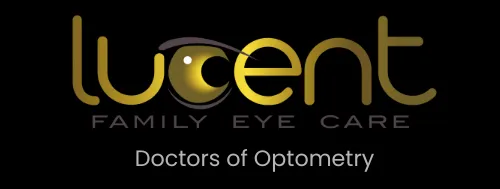
Struggling With Dry, Irritated Eyes? Relief Starts Here.
Are your eyes frequently dry, gritty, or burning? Do you find yourself blinking constantly to clear your vision, struggling to read, or feeling discomfort after hours on your computer or phone? Maybe you wake up with red, tired eyes—or your contact lenses just aren’t as comfortable as they used to be.
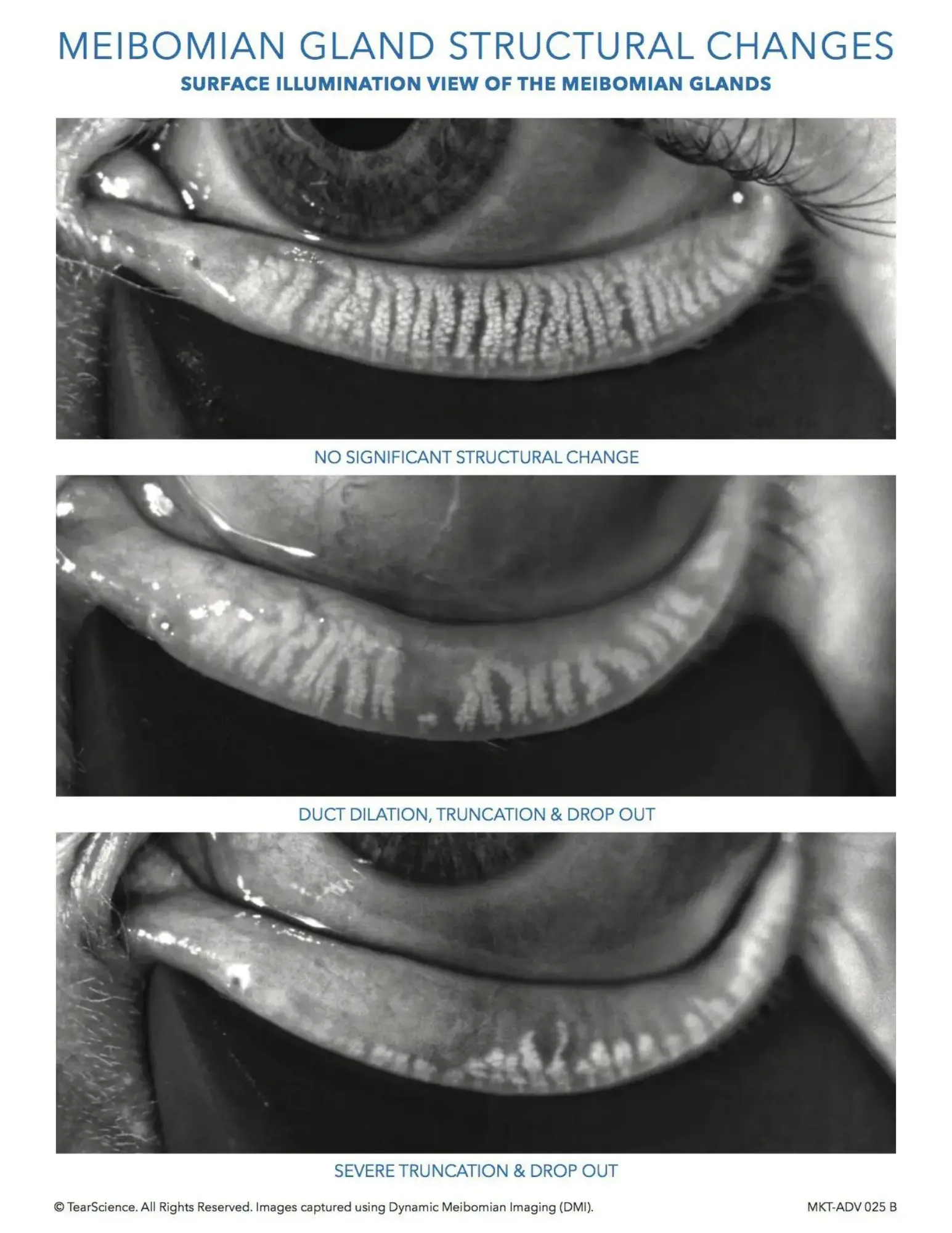
Dry eye disease is more than a minor inconvenience—it poses real risks. It can disrupt your focus at work, leading to fluctuating vision and costly errors. While driving, blurred vision from dry eyes increases the likelihood of accidents.
Left untreated, it may result in serious corneal complications, such as abrasions, desensitization, permanent loss of meibomian glands, and even corneal melting.
Symptoms can include:
Red, tired, or heavy-feeling eyes
Stinging, burning, poking sensations
Gritty, scratchy, foreign body sensations
Itchy, dry eyes
Tight or friction feeling
Sensitivity to light or wind
Blurred or fluctuating vision
Excessive tearing or watery eyes
Eye fatigue after screen time or reading
Difficulty wearing contact lenses
Excessive mucus or "sleep" in eyes upon waking
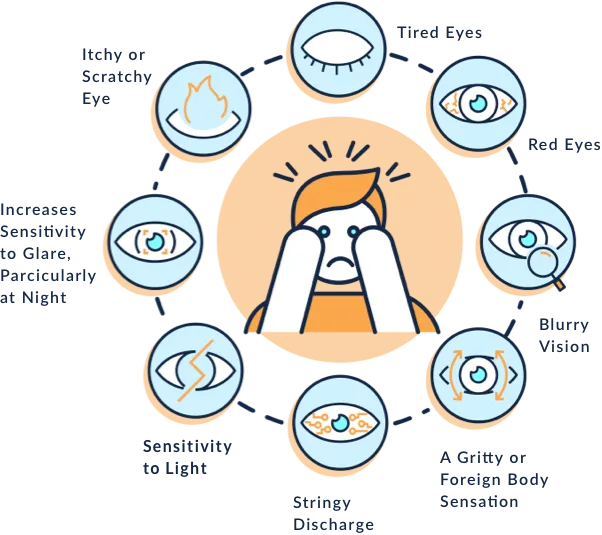
Causes of Dry Eye Disease
Aging: Tear production naturally decreases with age, making dry eye more common in older adults.
Hormonal Changes: Hormonal fluctuations—such as those during menopause or pregnancy—can affect tear quality and quantity.
Prolonged Screen Time: Extended use of computers or digital devices reduces blink rate, leading to increased tear evaporation.
Environmental Conditions: Exposure to wind, dry air, air conditioning, or smoke can accelerate tear evaporation.
Medications: Certain medications, including antihistamines, antidepressants, thyroid and blood pressure drugs, can reduce tear production.
Medical Conditions: Diseases such as rheumatoid arthritis, diabetes, thyroid disorders, and Sjögren’s syndrome are linked to dry eye.
Contact Lens Wear: Long-term contact lens use can disrupt the tear film and contribute to dryness.
Eyelid Problems: Conditions that prevent proper eyelid closure or blinking can interfere with tear distribution.
Meibomian Gland Dysfunction: Blocked or poorly functioning oil glands in the eyelids (meibomian glands) can lead to rapid tear evaporation.
Refractive or Eye Surgery: Procedures such as LASIK, PRK, or cataract surgery can temporarily or permanently affect tear production.
Mechanisms of Dry Eye Disease
Dry eye disease occurs when the eyes cannot maintain a healthy tear film, resulting in discomfort and potential damage. The main mechanisms include:
1. Meibomian Gland Dysfunction (MGD):
The Meibomian glands, located in the eyelids, produce the oily layer of the tear film that prevents rapid evaporation. In MGD, these glands become blocked or their secretions change in quality, leading to an unstable tear film and increased evaporation. Over time, gland blockage can cause permanent gland loss and worsen dryness.
2. Demodex Blepharitis:
Demodex mites are microscopic organisms that can infest the eyelash follicles and meibomian glands. Their presence triggers irritation and inflammation of the eyelids (blepharitis), disrupting normal gland function. This leads to poor tear film stability and contributes to both evaporative and inflammatory dry eye.
3. Inflammatory Dry Eye Disease:
Chronic inflammation—often triggered by underlying autoimmune diseases, environmental stress, or persistent irritation—damages the cells responsible for producing tears. Inflammatory mediators disrupt both tear production and the health of the ocular surface, perpetuating a cycle of irritation and dryness.
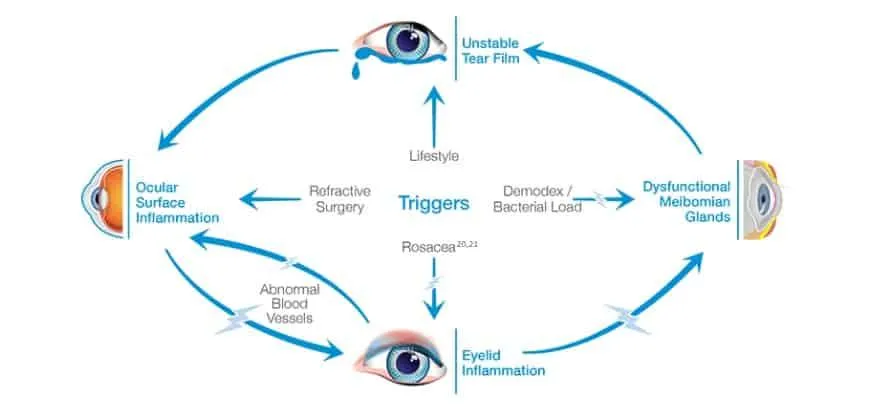
You Don’t Have to Live With Discomfort
At Lucent Family Eye Care, we specialize in diagnosing and treating even the most persistent dry eye cases. Using advanced diagnostic technology—including meibography imaging to precisely assess your tear glands—we uncover the root cause of your symptoms, not just the surface irritation.
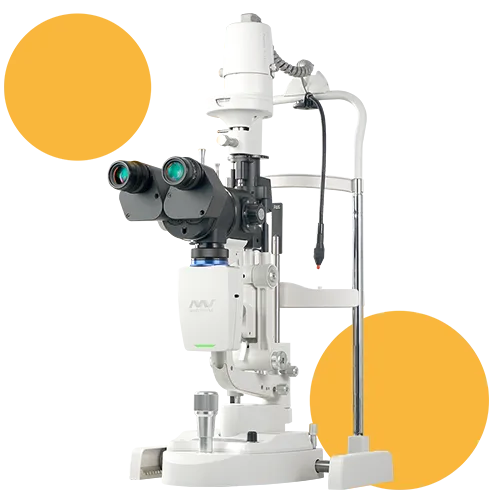
Why Act Now?
Dry eye disease is progressive—without proper treatment, symptoms can worsen and impact your quality of life. Many patients delay care, only to find their discomfort intensifies and daily tasks become harder. Early intervention means better results and long-term relief.
Advanced Solutions for Lasting Comfort
We offer the latest in dry eye treatments, including Radiofrequency Therapy, IPL (Intense Pulsed Light) Therapy, Thermal Compressing and Manual Gland Expression, as well as customized home care plans for your unique needs. These advanced options target inflammation, restore gland function, and provide real, lasting relief.
Take the First Step Toward Clear, Comfortable Vision
Don’t ignore the signs. Book your comprehensive dry eye consultation today and discover how our expertise and technology can help you see—and feel—your best.
Eliminating Demodex mites and blepharitis after IPL treatment
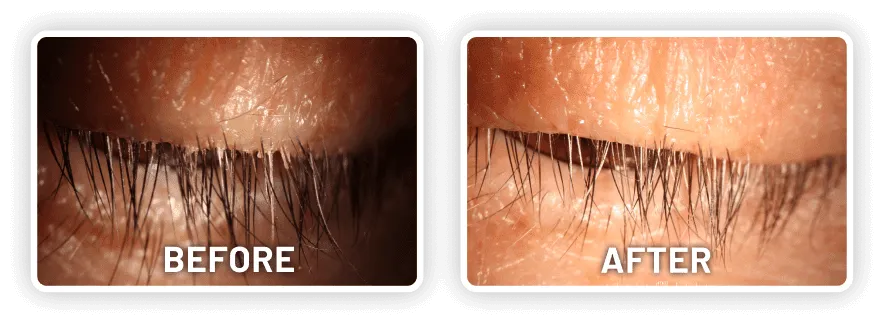
Reducing inflammation in eyelids after Radiofrequency & IPL treatments
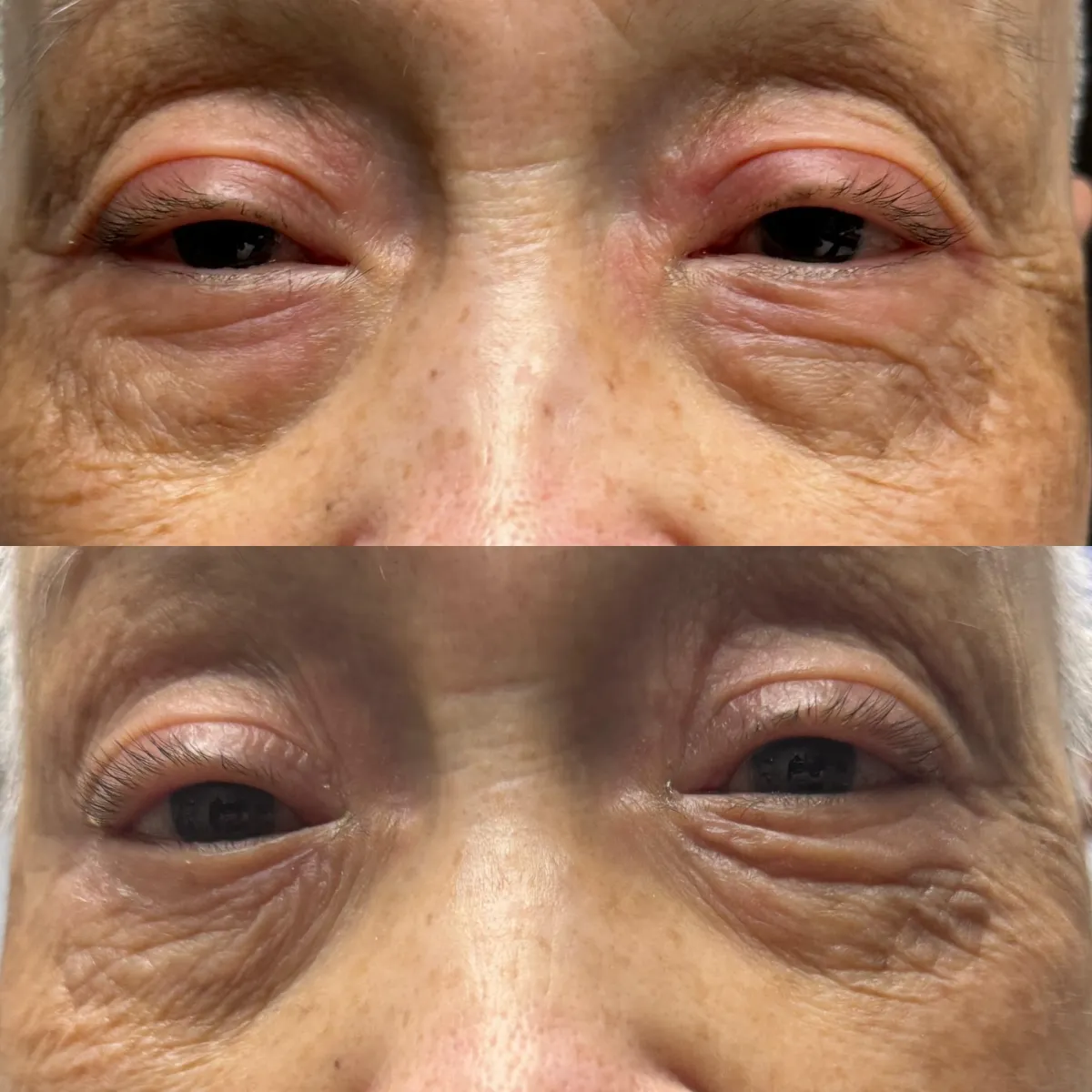
Bonus aesthetic benefits from Radiofrequency treatment (reduction in crow's feet around eyelids)
and IPL treatment (reduction in brown pigmentation spots)
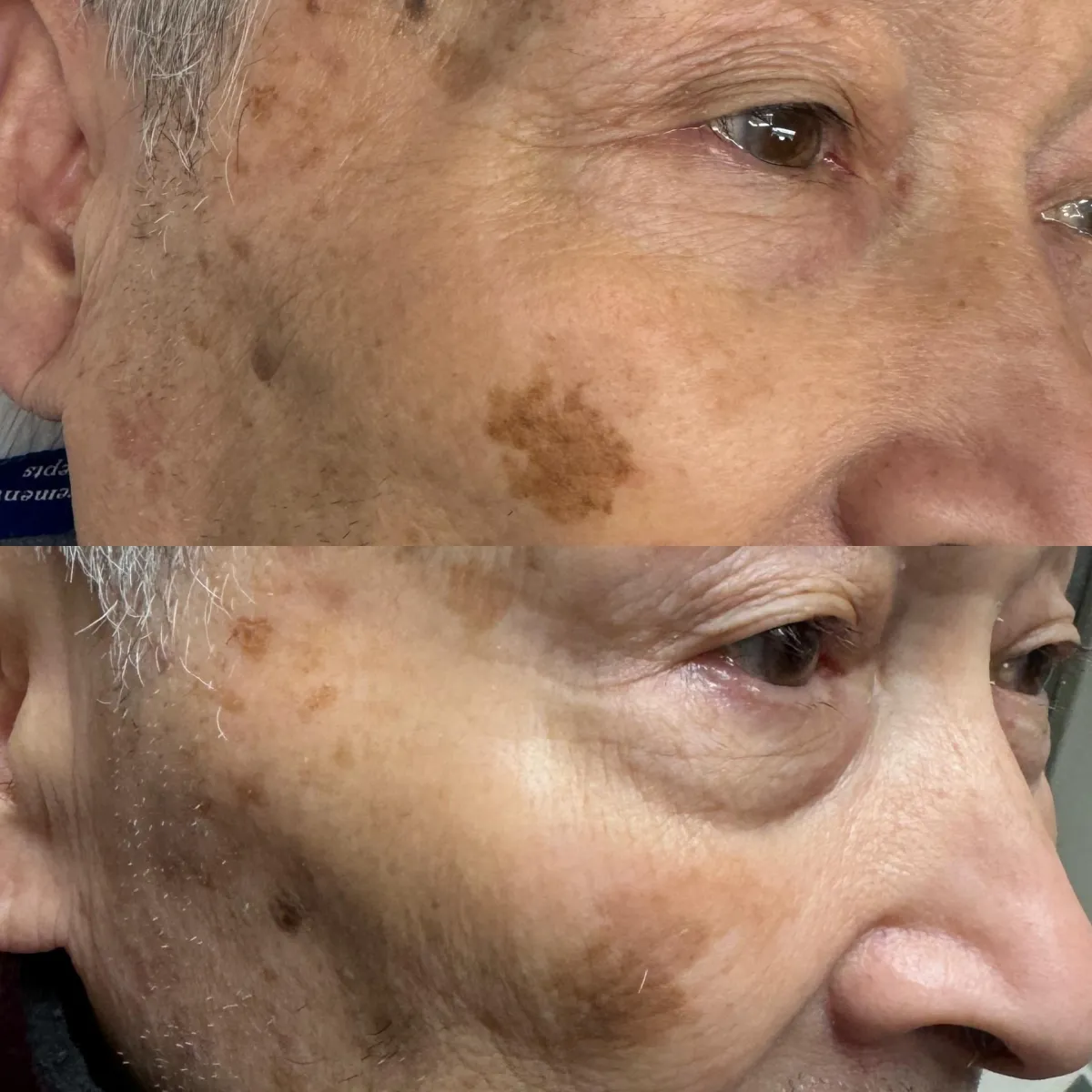
Full face add-on of Lumecca IPL during dry eye treatment to reduce
overall pigmentation and improve brightness of skin via photofacial
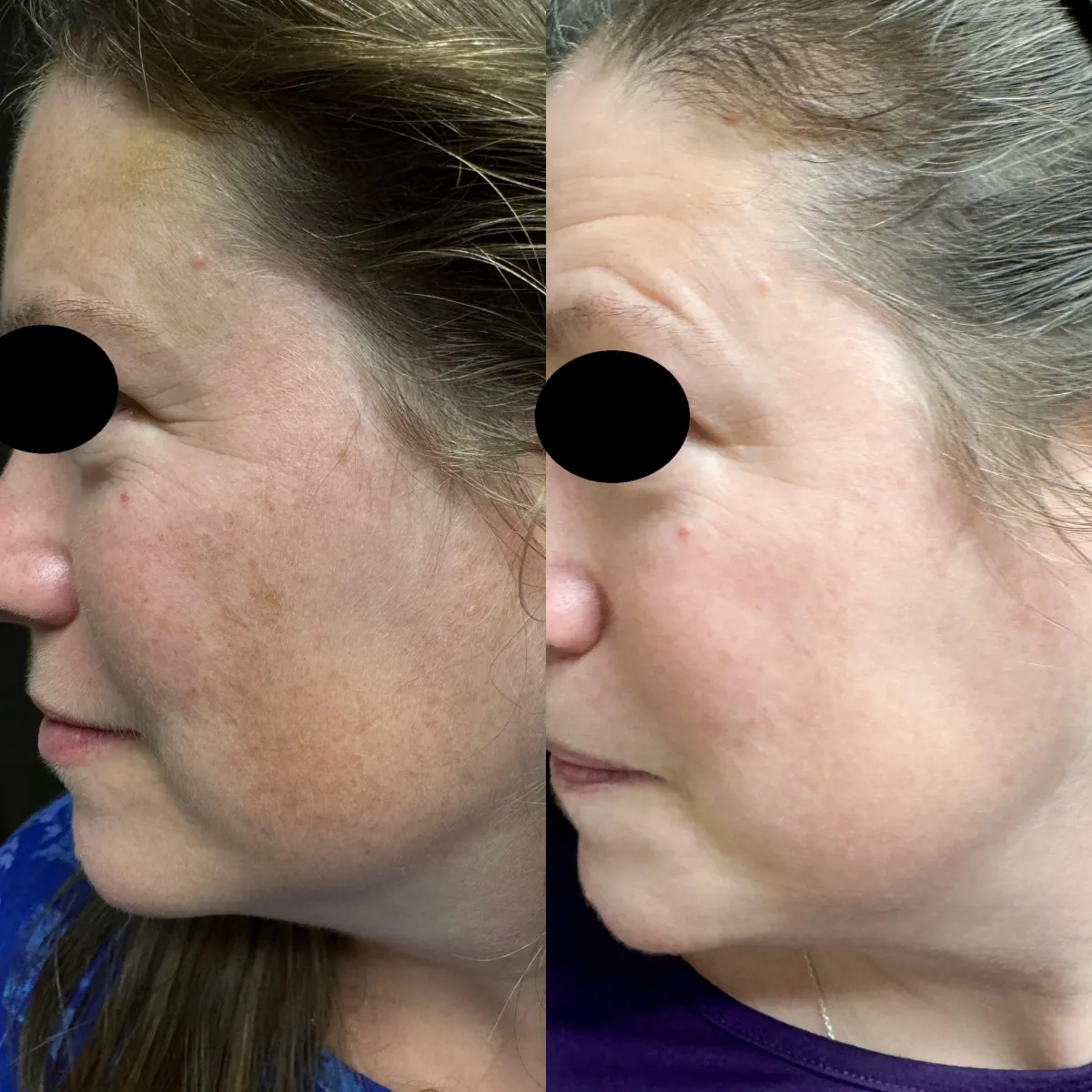
Patient Testimonial: "I came to Lucent Family Eye Care because my eyes were constantly red and burning with my contact lenses. Dr. Yee diagnosed severe dry eye that three other eye doctors missed. After their IPL treatment and new contact lens fitting, my eyes feel amazing all day. Plus, my new glasses make me look 10 years younger - I get compliments constantly! My computer headaches are completely gone, and I can work 12-hour days without eye strain. I wish I'd found them sooner."
- Jennifer Chen, Marketing Director, Vancouver
3 Simple Steps to Better Vision:
Step 1: Request Your Dry Eye Consultation
Fill out our quick online form with your name, date of birth, phone number, & email. Takes less than 1 minute to complete.
Step 2: We'll Call to Schedule Your Personalized Appointment
Our patient care coordinator will contact you within 24 hours to book your convenient appointment time and answer any questions about your visit or insurance coverage.
Step 3: Experience Advanced Dry Eye Analysis and Consultation at Our Modern Clinic
Arrive for your comprehensive exam where our latest technology and expert care team will assess your dry eye disease and create your personalized treatment plan.
How much does a dry eye consultation cost, and will my insurance cover it?
The cost of a dry eye consultation at our clinic is $135, but if you book a treatment within 1 month of your consultation, this amount can be credited towards your treatment fees.
Extended health plans can cover this cost through the eye exam benefit, which our staff will be happy to try and direct claim for you.
If you’re unsure, our staff is happy to help you review your benefits and explain your options before booking your appointment. Call or text us at 604.777.7577
I have terrible dry eyes - what treatments actually work?
At Lucent Family Eye Care, we provide personalized dry eye assessments and treatments tailored to your needs. Using advanced diagnostic tools, including a slit lamp with meibography, we identify the root cause of your symptoms. Our clinic offers state-of-the-art therapies such as radiofrequency (Forma-i) and IPL (Lumecca-i and Lumecca) to improve meibomian gland function and reduce inflammation. For more persistent cases, we may recommend scleral lenses to keep the eyes hydrated. When needed, we also prescribe anti-inflammatory drops like Restasis, Cequa, or Xiidra, and short-term steroid drops to restore tear quality and comfort. In addition, we guide you through lifestyle adjustments and at-home remedies to relieve symptoms and help prevent progression of dry eye disease.
How long does it take to see improvement?
Improvement timelines vary depending on severity and treatment plan; some patients notice relief within weeks.
MEET THE Doctor & Clinic FOUNDER
Hey, I'm Dr. Linda Yee!
Dr. Linda Yee is a dedicated optometrist and Clinic Director at Lucent Family Eye Care in Vancouver & Burnaby, BC. She earned her Doctorate of Optometry with high honours from the prestigious University of Waterloo School of Optometry.
Dr. Yee believes in providing more than just vision correction — she strives for a comprehensive eye and vision health exam that ensures patients enjoy clear, healthy vision now and into the future. Her clinical experience is broad, encompassing management of ocular diseases, co-management of refractive surgeries including LASIK and cataract procedures, as well as care for pediatric and adult patients. Dr. Yee also provides advanced treatment options for dry eye disease patients.
Multilingual in her practice, Dr. Yee offers patient care in English, Mandarin, Cantonese, and Korean—ensuring that more members of the community can comfortably access and understand their eye health.
She holds active membership in both the British Columbia Doctors of Optometry and the Canadian Optometric Association, keeping up with advances in optometry and maintaining high standards of care.
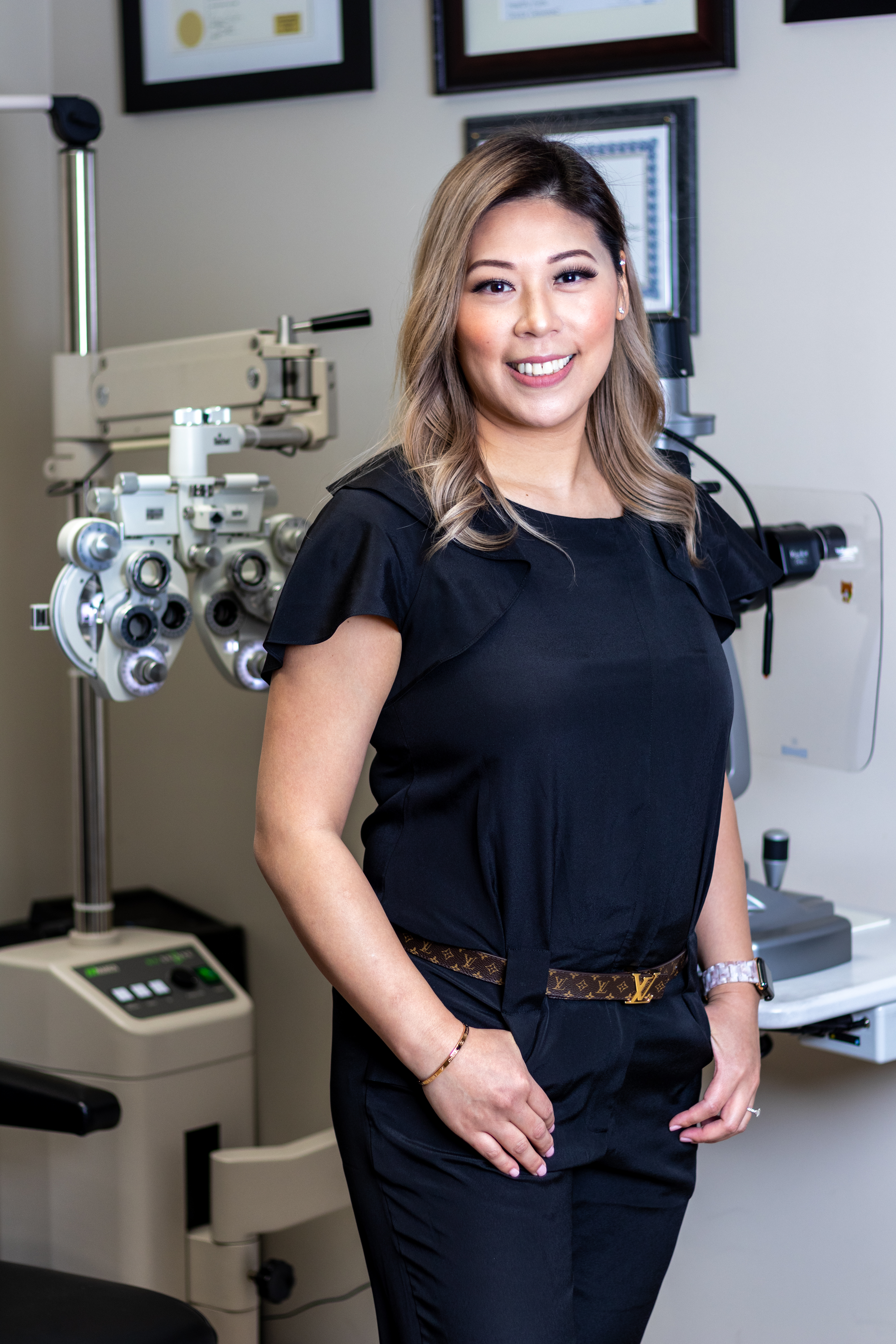

Innovation
Cutting-Edge Care, Tailored for You.

Integrity
Honest Guidance, Clear Choices.

Excellence
Top-Notch Services.
FOLLOW US
CUSTOMER CARE
LEGAL
Copyright 2025. Lucent Family Eye Care. All Rights Reserved.